On March 11th, 2011, northeastern Japan was hit by a magnitude 9 earthquake. Less than an hour later, massive tsunami waves crashed into many of Japan’s northeastern coastal cities. Flooding was rampant, leaving over 18,000 people dead, mostly from drowning. The nation is still recovering and as of last summer, more than 300,000 people were still living in temporary housing. This unforgettable event became known as the Great Sendai Earthquake or the Great Tohoku Earthquake. A month after the devastation, the Mayor of Ofunato invited a volunteer organization called All Hands Volunteers to help repair damages. A friend of mine became one of over a thousand people who flew there to help out during All Hands’ 6 month stay. Here is her story.
Q: How long were you in Japan and what part exactly?
A: I was there for 3 months, in a city called Ofunato, Iwate prefecture which is the second largest prefecture of Japan. It’s in the Tohoku region, the most eastern point in the north.
Q: How did you get to work with All Hands Volunteers?
A: I’ve always had a strong desire to do disaster relief work for years, but larger corporations would always require a degree. I thought, really? I need a random degree to learn how to use saws, demolition a house and remove tsunami debris? After the tsunami struck in March of 2011 and having family in Japan, the need to help grew even stronger. While researching different ways to help via the interwebs, I came across All Hands Volunteers. They are a company that does not charge for volunteering, provides a place to sleep (sleeping bag not included), 3 meals per day, 6 days a week. Volunteers are responsible for funding the plane ticket to the project and back home, the cost of their own meals on the one day off, plus any activities off-site (i.e. sightseeing).
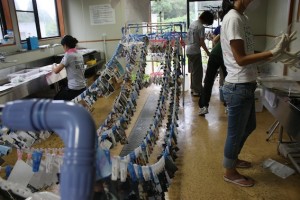
Retouching photos found. One of several other jobs that All Hands does. All restored photos were put into albums and returned to a library run by city volunteers. Citizens could look through and take what was theirs.
Photo courtesy of Gracie Blaze.
Q: When you first arrived, what was your biggest surprise?
A: The gravity of destruction was far more severe than I was prepared for. Buildings and houses torn to pieces, parts of people’s lives strewn about, cars and boats washed ashore, debris everywhere. There were several large foreshocks (smaller quakes before the main eruption) that started from March 9th, then 3 major earthquakes within an hour on March 11th. The ports of the city we were in as well as the neighboring city of Rikuzentakata were almost entirely destroyed by the tsunami that followed, which made heights up to 3 stories. Over the following months, approximately 800 aftershocks were felt throughout the region.
Despite all the destruction, what was truly inspiring was the positive message of “Gambarou Ofunato!” all around and the resilient spirit of the people. The word, ‘gambarou’ doesn’t have a direct translation but my friend, Brett, explained it to me best: “It’s like when you’re about to go into battle and your grandpa is sending you off from the lawn saying, ‘Gambarou!’ Kind of a ‘let’s keep on fighting and never give up’ sort of message.”
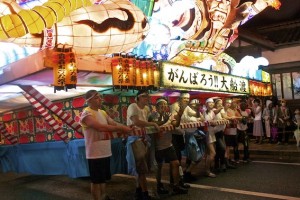
Volunteers pulling a float during a festival. Banner reads ‘Gambarou Ofunato.’
Photo courtesy of Gracie Blaze.
Q: What do you think is the best selling point for people to live and volunteer in Japan?
A: Volunteering allows everyone to learn new skills. For example, I fell in love with carpentry, power drills and saws. Deconstructing houses and demudding under floorboards will always have a very special place in my heart.
Some of the deepest connections I have ever made were with those I met during my 3 months in Ofunato. When you sleep 15 people to a room and spend 24 hours together, you learn to get comfortable with (and to be considerate of) each other very quickly. Volunteers come from all over the world, from different walks of life and at different stages of their lives but all with the same goal: to help others. That bond is what keeps us together. Even 3 years on, some of the volunteers have gone back to Ofunato during festivals to reunite with fellow volunteers and locals. Some even get together in each other’s home cities.
Q: What would you say is the downside to living and volunteering in Japan?
A: At some point most of us have to go home. Back to our jobs, our day-to-day lives. I miss the life of being on projects, the grueling days of shoveling debris into 10 ton mud bags in 30 degree (Celsius) weather, the camaraderie and so much more. Most of all I miss the friends I made who live in different parts of the world. Thank goodness for the modern technology of Skype, Viber, and Facebook.
Q: What would you advise someone who is about to go volunteer in Japan to pack in their suitcase?
A: A laptop to keep in touch. However, if you’re in rural areas, this may be a waste of space. A ‘phrases and etiquette’ book. The effort to learn basic ‘please and thank yous’ in the mother tongue are always appreciated wherever you go. The etiquette section would teach that certain customs or hand signs can mean one thing in one culture and be rude in another. Educate yourself before arriving! A smile can also go a long way in any country, even if you don’t speak the language. It also helps to always remember why you’re there.
Q: How long can expats stay in Japan without a visa?
A: Canadians can stay up to 3 months.
Q: Was housing provided for you upon arrival?
A: Yes. The first question asked was,“Do you prefer a hot shower or beer?” Project Tohoku had 2 bases for volunteers based on your answer.
Q: What was the food like?
A: Despite what people think, it’s not sushi 24/7. Awesome sushi though, when you do have it. Breakfast was very North American: coffee, cereal and porridge served at our respective bases. Pancake Wednesdays at the main Sakari Base were always the best! The most coveted were the smarties pancakes. Lunch on project was bento style where we would take a ‘kyuukei’ (meaning ‘break time’ in Japanese). Bento lunches included portions of proteins (usually fried), rice and pickled vegetables. Also plentiful were vending machines with a variety of soda pops, tea, water and electrolyte replacers. Our buses would bring us back to the main base for dinner. We always had a great spread prepared for us by the local ladies using local produce and rice. Sometimes we were even treated to meals gifted to us by the neighbouring restaurants!
Q: Aside from friends and family, what did you miss about Canada?
A: No matter how adaptable we think we are, change can be fearsome. Going to a foreign country, meeting and living with people you don’t know…for most, psychologically, that’s a scary place. But the rewards you reap for pushing yourself, mustering up the courage to do things that are out of your comfort zone will be extraordinary.
Certainly, basic necessities such as clean water or electricity that aren’t readily available in some disaster zones would be missed. In this case, we had those things, were fed and had a place to sleep. We were there helping those who lost everything. Most of us didn’t focus on what we were missing and instead felt gratitude for what we had back home. For the short time spent there, for the small part that was played, it was I who received the greater gift. That of friendships, experiences, personal growth and memories that will be treasured for the rest of my life.
For more information on All Hands Volunteers, click here.
For volunteer and application info, click here. Be prepared to state when you are available to leave and how long you could stay on a project.
Some current All Hands projects (as of publication date) include: Project Staten Island, New York (superstorm Sandy response), Project Leyte, Philippines (typhoon response), Project Pilger, Nebraska (tornado relief) and Project Colorado, north-central Colorado (flood response).
If you have any questions or comments for myself or Grace, leave a comment below and I’ll be sure to get back to you. Until next week, be well Readers :)
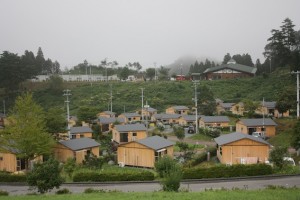
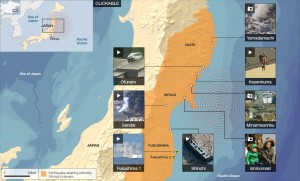
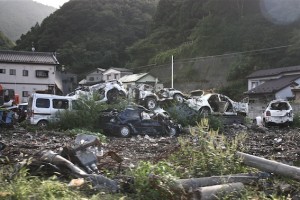
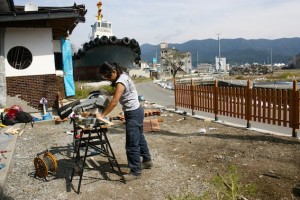
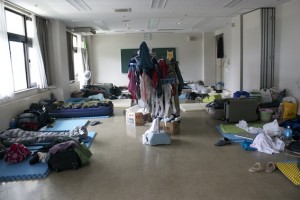
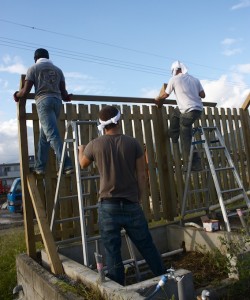
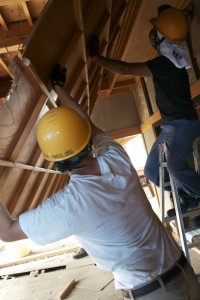
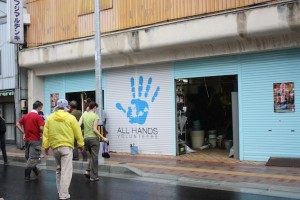
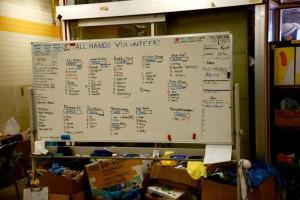
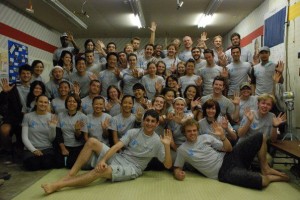
My pleasure! Thanks for reading :)
Thanks for letting me know about All Hands Volunteers. What a great opportunity! I might do that some time to learn some carpentry skills.
Hi Sweetheart:
What a marvelous opportunity it was for your friend Grace to learn so much about a different culture, different way of life and to understand that it is better to give than receive.
She will remember her contribution or her lifetime and she knows she acted rather than just talked.
take care,love youse
nana and gramp xxxxxxxxxxxxxxxoooooooooooooooo